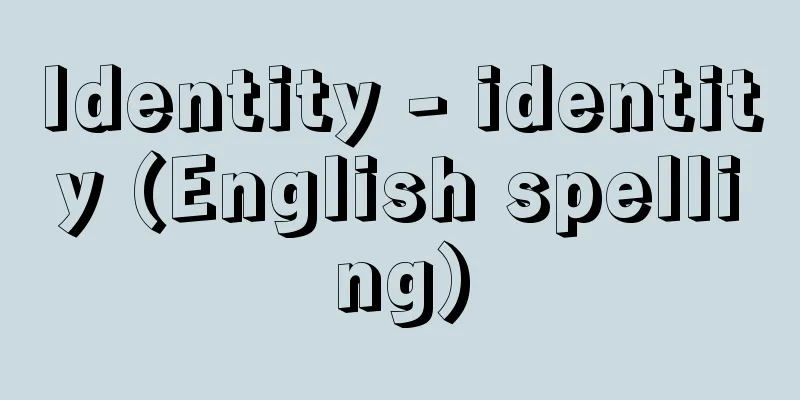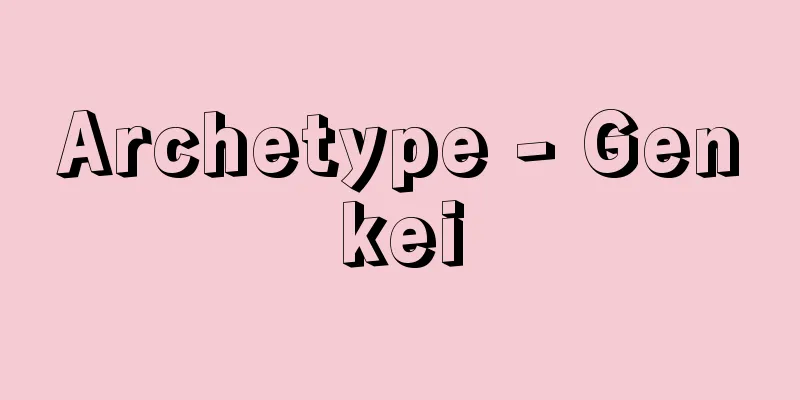Identity - identity (English spelling)

|
It refers to the fact that an individual thing continues to be itself through differences in time and place, changes in properties, etc. In the case of a person, this is called "personal identity". When two things (yesterday's me and today's me) are one in number (myself), this is called "numerical identity" or "self-identity", and when there are two (me and my twin brother), this is called "qualitative (species) identity". The latter is synonymous with similarity. As seen in Heraclitus' paradox "We enter and do not enter the same river", identity has been a major concern of philosophers since ancient times. Locke and Hume, since only unity is an issue in synchronic situations, sought the origin of the concept of identity in diachronic situations, and based it on "spatiotemporal continuity", which means that something remains the same at different times and places. In contrast, Leibniz formulated identity in synchronic situations as the "principle of the identity of indistinguishables". In other words, if a has all the properties of b, and b has all the properties of a, then a and b are said to be identical. In modern times, identity is mainly dealt with in the field of semantics as an identity statement. Frege considered identity to be a relationship between names or symbols that refer to objects, since if identity is a relationship between things in themselves, then there is no difference in cognitive value between a=b and a=a. In other words, "morning star = evening star" have the same referent (Venus), but their meanings (modes of object reference) are different. Recently, Kripke has taken up the issue of the identity of individual things that run through many possible worlds, based on the results of modal logic, and from there has raised a new problem by asserting a kind of essentialism. [Noya Keiichi] "Paradox" by Hideyoshi Nakamura (Chuko Shinsho) Source: Shogakukan Encyclopedia Nipponica About Encyclopedia Nipponica Information | Legend |
|
個物が時と場所の相違、諸性質の変化などを通じてそのもの自身であり続けることをいう。人の場合はとくに「人格同一性」とよばれる。また二つのもの(昨日の私と今日の私)が数において一つ(私自身)であることを「数的同一性」ないしは「自己同一性」、二つである場合(私と双子の兄弟)を「質的(種)同一性」という。後者は類似性と同義である。ヘラクレイトスの「われわれは同じ河流に入り、また入らない」という逆説にみられるごとく、同一性は古来哲学者たちの枢要な関心事であった。ロックおよびヒュームは、共時的な場面では単一性のみが問題となることから、同一性の概念の起源を通時的な場面に求め、その根拠を、異なる時と場所で同じものであり続けるという「時空的連続性」に置いた。それに対してライプニッツは、共時的場面における同一性を「不可識別者同一の原理」として定式化した。すなわち、aがbのあらゆる性質をもち、かつbがaのあらゆる性質をもてば、aとbは同一であるとされる。現代では、同一性はおもに同一性言明として意味論の領域で取り扱われる。フレーゲは、もし同一性が事物のそれ自身に対する関係であるとすれば、a=bとa=aの間に認識価値の差がなくなるところから、同一性は対象を指示する名前や記号の間の関係であると考えた。すなわち「明けの明星=宵の明星」は同一の指示対象(金星)をもつが、その意味(対象指示の様式)は異なるとしたのである。また最近ではクリプキが様相論理学の成果を踏まえて多数の可能世界を貫く個物の同一性を問題にし、そこから一種の本質主義を主張して新たな問題提起を行った。 [野家啓一] 『中村秀吉著『パラドックス』(中公新書)』 出典 小学館 日本大百科全書(ニッポニカ)日本大百科全書(ニッポニカ)について 情報 | 凡例 |
<<: United Front - United Front
Recommend
Aerophones
...For this reason, when classifying musical inst...
Ezogashima Island
…The boundaries of fishing grounds were determine...
Mojiriori - Mojiriori
Also called karamiori. In normal textiles, the war...
Mesohippus
…At this time, unlike other odd-toed ungulates, t...
Barisal (English spelling)
A city in Khulna State in southern Bangladesh. It ...
Mr. Uemura
A feudal lord in the early modern period. A descen...
Feme Trial - Feme Saiban (English spelling) Femegericht
A unique type of trial that appeared in the Westph...
Quicherat, Jules Étienne Joseph
Born: October 13, 1814, Paris [Died] April 8, 1882...
Kaizuka Gobo - Kaizuka Gobo
…The city faces Osaka Bay and stretches across th...
Twenty-third night - Nijuusanya
It is one of the Tsukimachi (moon-waiting) events...
Meirokusha - Meirokusha
Founded in 1873 (Meiji 6), it was Japan's fir...
Rhodos
…A Greek island in the southeastern Aegean Sea, o...
Heterotropa tamaensis (English spelling) Heterotropatamaensis
… [Mitsuru Hotta]... *Some of the terminology tha...
Bolyai János
Born: December 15, 1802, Kolozhbar [Died] January ...
Fruit drinks with berries - Fruit drinks with berries
…Currently, JAS (Japan Agricultural Standards) cl...

![Visayas [Islands] - Visayas](/upload/images/67cc9bdbdb3de.webp)







